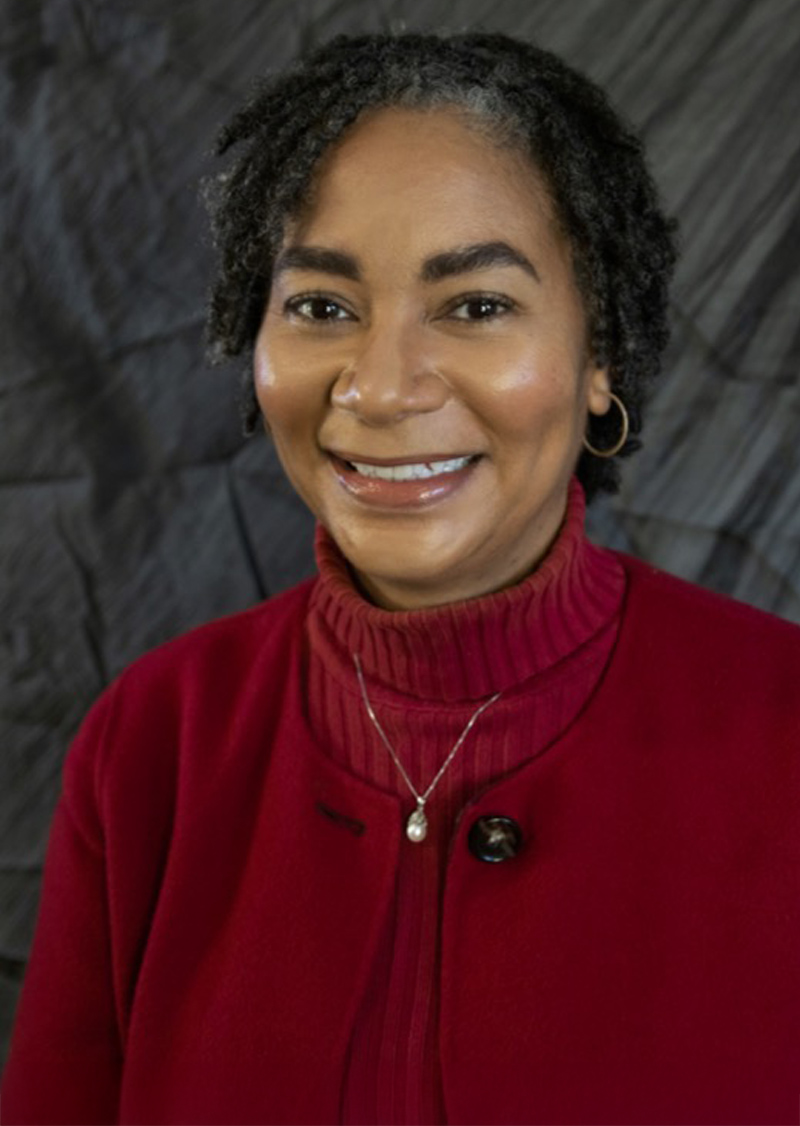
Valerie Sweeney Prince
Professor
Maccabbee Bldg., 11th Floor
5057 Woodward Ave
Website(s)
vefuaprince.ag-sites.net/index.htm
Social media
linkedin.com/in/valerie-sweeney-prince-phd
Media
Department
Valerie Sweeney Prince
V Efua Prince‘s work often takes an interdisciplinary form as history, poetry, drama and performance, in order to transform the history of black women into political art. Prince is a professor of African American studies. She received her Ph.D. from the University of Michigan in English Language and Literature and has served as a director of black studies at Allegheny College, the Avalon Professor of Humanities at Hampton University, a visiting scholar at the University of Virginia’s Carter G. Woodson Institute and a fellow at Harvard University’s W. E. B. Du Bois Center. Her current work represents a refinement of themes she has been considering for more than 20 years, evident in both "Burnin’ Down the House: Home in African American Literature" (2005) and "Daughter’s Exchange" (2018) and "Kin: Practically True Stories" (2024). She co-authored with Hoke S. Glover III, "Crazy As Hell: The Best Little Guide to Black History" (2024).
Research interest(s)/area of expertise
- 20th-21st century African American literature
- Home in African American literature
- African American women
- Metaphor
- Housework
Research
"Laundry: How Dirt, Water, and Cleaning Clothes Became the Real Work of America" tells the story of how washing clothes came to occupy such an outsized place in our lives. Today, with 82% of American households having access to residential washing machines, laundry is most often done as a chore at home. Laundry is the private process by which we sanitize our garments in preparation for going out into the world to face the public. Laundry has been deemed by society as necessary work. It is both ubiquitous and transgressive. Moreover, laundry is emblematic of housework more broadly. Laundry signifies.
The particulars of laundry work reveal a surprisingly expansive view of the world. Laundry evokes questions of race, gender, and class, as well as concerns about industrialization, ecology, and sustainability. Laundry work and its impact are getting harder to see, even as their consequences become farther reaching and increasingly dire.
Drawing on personal and familial histories to guide the reader through this wide-reaching study, the range of Laundry reflects the ubiquity of its subject. Everybody does laundry. Laundry leans into this sense of its being everywhere at once. Laundry flows like water into the seams of our increasingly urbanized, gendered, raced, and classed global society. The breadth of the project is managed by design. Laundry is written in three parts. The three parts are organized into short chapters and told with an orality rooted in black womanism.
Part one takes up the story of laundry with the 1881 Atlanta Washerwomen’s Strike in order to consider the positioning of the low wage worker within an industrializing ecology. Part two introduces the coalminer’s daughters of West Virginia to reveal the ways that twentieth-century infrastructure gives rise to the washing machine and resolutely shifts laundry from low-wage to unpaid labor. Part three takes us to the home of the world’s leading washing machine manufacturer today, Benton Harbor, Michigan, to see why laundry’s global impact, on everything from local governance, demography and culture, to the health of the global food chain, demands our attention. By the end, "Laundry" covers some of the most urgent topics of our lives.
Education
- Ph.D. in English Language and Literature, University of Michigan
- M.A. in English Language and Literature, University of Michigan
- B.A. in English, Hampton University
Selected publications
- Burnin’ Down the House: Home in African American Literature. New York: Columbia University Press, 2005
- “Keep on Moving Don’t Stop: Invisible Man” in Bloom’s Critical Views: Ralph Ellison, second edition. Edited by Harold Bloom. New York: Bloom’s Literary Criticism, 2010
- Daughter’s Exchange: a vernacular performance, Marlboro, NJ: Alternative Book Press, 2018
- Crazy as Hell: The Best Little Guide to Black History, New York: W. W. Norton, 2024
- Kin: Practically True Stories, Detroit, MI: Wayne State University Press, 2024
Courses taught by Valerie Sweeney Prince
Fall Term 2025 (future)
- AFS2390 - Introduction to African-American Literature: Writing about Texts
- AFS3300 - Black Women Writers
- ENG2390 - Introduction to African-American Literature: Writing about Texts
Winter Term 2025 (current)
- AFS2390 - Introduction to African-American Literature: Writing about Texts
- AFS5110 - Black Women in America
- ENG2390 - Introduction to African-American Literature: Writing about Texts
- GSW5110 - Black Women in America
Fall Term 2024
- AFS2390 - Introduction to African-American Literature: Writing about Texts
- AFS3300 - Black Women Writers
- ENG2390 - Introduction to African-American Literature: Writing about Texts
- GSW3300 - Black Women Writers
Fall Term 2023
- AFS1010 - Introduction to African American Studies
- AFS3300 - Black Women Writers
- GSW3300 - Black Women Writers